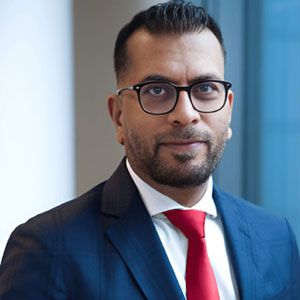
Urban planning and design services play a pivotal role in shaping sustainable and efficient cities, addressing the challenges of urbanization, and creating livable environments for rapidly growing populations. This multidisciplinary industry combines architecture, engineering, and environmental science to design spaces that meet the needs of communities while promoting resilience and functionality.
SYSTRA India is a leader in this space and is committed to designing safe, sustainable transport solutions. With a focus on innovation and a passionate workforce, the firm is at the forefront of building the transportation systems of tomorrow, shaping urban mobility and transforming cities across the globe.
Efficiency, and Adaptability
SYSTRA India faces three major challenges in the urban transportation sector. The first is the lack of a unified authority to manage urban transport. In cities like Kochi, various agencies like Metro authorities, state transport authorities, and municipalities operate in isolation, leading to inefficiencies and congestion in the network. For example, according to study conducted by SYSTRA India in Kochi, the Metro and bus systems overlap by 60 percent of their networks, competing rather than complementing each other and causing financial and operational challenge. The second challenge is limited capacity and quality resources, as both public entities and consultants are building parallel capabilities, resulting in duplicated efforts.
Lastly, there’s a reluctance to adopt diverse transport solutions. The Metro has seen success, leading many cities to adopt it indiscriminately. Yet, smaller cities may benefit more from alternative, cost-effective transit systems. Embracing adaptable technologies is crucial for future urban mobility.
The firm is an independent pure player, defining its approach to the transportation industry through three core principles and values. First, ‘Bold Leadership’, which empowers employees worldwide to assertively challenge the status quo, fostering decision-making aligned with what they believe is right. The second principle, ‘Connected Teams’, emphasizes teamwork beyond borders, ensuring that employees worldwide collaborate effectively to manage complex infrastructure projects. This interconnected approach enables Indian teams to access global expertise, leveraging collective strength to deliver exceptional results.
“At SYSTRA India, we believe that excellence is the cornerstone of our approach, guiding our commitment to delivering complex projects with the highest quality, safety, and timeliness standards. Our core values focusing on health and safety, maintaining unwavering ethics and compliance, and prioritizing sustainability, define our operations and set us apart in the industry. With global teams unified by shared values, we are dedicated to executing every project with the utmost precision and care, ensuring that we meet the evolving demands of urban mobility and sustainable infrastructure”, speaks Hari Somalraju, Managing Director, SYSTRA India.
Driving Innovation
SYSTRA India stands out through its innovative approach to project optimization, digitalization, and sustainability. Notably, it pioneered the U-girder structure for Dubai Metro, reducing material and time costs, and resulting in 20-25 percent savings. In Chennai, the firm optimized station length, reducing it by 30 percent. The company’s proprietary ePMC platform enhances project efficiency, minimizing human error. The company is also committed to sustainability, targeting a 10 percent reduction in carbon emissions in 2024. By incorporating energy-efficient designs and eco-friendly materials, SYSTRA addresses the long-term environmental impact of infrastructure projects.
“We envision a future of transportation that prioritizes human convenience, comfort, and sustainability, redefining how people move between destinations. With rising expectations for seamless, efficient, and eco-friendly options, we see the future of urban mobility shaped by rail-based systems like metros, light rail, and trams, which offer cost-effective, low-emission solutions ideal for Indian cities.
In high-traffic areas, these rail solutions, complemented by articulated buses, will create a comprehensive mobility network, alleviating congestion while ensuring a faster, more convenient commute”, adds Hari. The firm’s commitment extends to developing technologies that minimize noise, pollution, and carbon emissions, aligning with global net-zero targets.
We use cookies to ensure you get the best experience on our website. Read more...